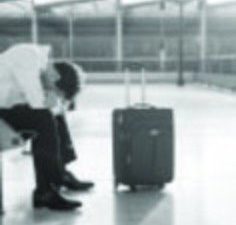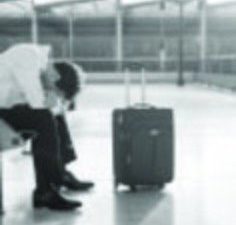Mind the (Information) Gap
September 30, 2017


Etymology is one of those $5 ‘-ology’ words you hear tossed about in college English classes; this one means, “the study of the origins of words” (not to be confused with entomology, which is the study of insects). As a writer, I find knowing the origins of a word can be helpful in determining the shades of meaning the word lends to its context.
So it was interesting to discover that etymologists have traced the origin of the word ‘travel’ back to its Latin roots, where it apparently started out as the word tripaliare, which means “to torture.” Subsequently, the word was handed down through the centuries to the Old French where it became travail, which we still use in English to mean “painfully difficult or burdensome work.”
All right, I admit it’s almost too easy to draw some cynical parallels between being tortured by ancient Romans and being on a business trip these days. But sarcasm aside, for the most part modern travelers have it pretty good; we are transported in relative comfort (some more relative than others); we sleep in warm, cushy beds; we can eat when we’re hungry (and even when we’re not); and in general our life on the road is easier than it was for our traveling ancestors. The Romans would scoff at calling such treatment “tripaliare.”
However, the truth is, the travel experience is not always everything it should be. With the complexities of global travel, there is always some lingering chance that something will go wrong. Fortunately for business travelers, technology rides to the rescue – most of the time.
Technology on the go for people on the go is about as perfect a fit as one could conjure up. And with the pervasiveness of digital mobility, not only are technology solutions to be found in practically every traveler’s hand, they have fundamentally changed our behavior; the way we act and the way we interact when we’re on the road. With such awesome power in our palms, it’s no wonder the travel business is going out of its way to automate processes, maximize profits and minimize the possibility of human error in the equation.
However there’s more than mere convenience at work here. Technology is not just a nice-to-have convenience – to make this big, complicated travel system work at all, it’s an absolutely necessity.
But (and you knew there was a ‘but’ coming) what’s the cost when don’t go according to plan?
On a recent trip to Europe, I got a chance first-hand to reflect on that question when my return flight was cancelled. It’s a situation we’re all familiar with; the schedule breaks down and all the well-laid plans, all the automation, all the ‘touchless’ passenger/airline interaction designed for perfect conditions, goes kaput. Then the real cost of disruption begins to reveal itself.
For whatever reason, such technological niceties as trip disruption and auto-rebooking didn’t kick in for lots of people on this flight. The queue of passengers stretched from one side of the terminal to the other, standing in line for probably two and a half hours or more. Behind the counter a bank of airline people manned the terminals, and who knows how many support personnel were scrambling behind the scenes in IT and the like.
To while away the time, I tried to calculate the losses – lost productivity for business travelers, lost vacation hours for leisure travelers, lost revenue, lost patience, lost good will. But there was no way to put a dollar (or a euro) amount on the chaos.
We may wish that the system always functioned perfectly. And frankly, it does about 99 percent of the time. Technology – mobility, artificial intelligence and all the rest of it – certainly makes huge contributions to that success. But technology alone won’t diminish the demand for well-trained people; indeed, it enhances it. When the technology fails, travel providers need to have the right people ready to step in, to set the system aright and get travelers on their way.
Because at the end of the day, it’s the business of travel to help people reach people.
By Dan Booth




